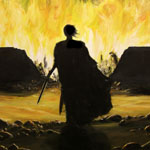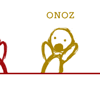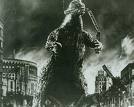The fourth wall
#1

Posted 05 September 2008 - 11:49 PM
Is it just me, or is TTH the first time SE has broken the fourth wall? Some passages come to mind, like the whole:
Now imagine a world without such honest, honourable men.
Yes, it should have been more difficult.
I know that's not the exact quote, but a friend has my book.
Anyway, I don't think he's done that before.
Now imagine a world without such honest, honourable men.
Yes, it should have been more difficult.
I know that's not the exact quote, but a friend has my book.
Anyway, I don't think he's done that before.
Flying Monkeys definitely win.
#2

Posted 06 September 2008 - 12:00 AM
The whole book is a supposedly recited narrative in Kruppe's voice to - sort of - K'rul and Fisher. I'm not sure if that counts as breaking the 4th wall, since he's talking to an in-story audience rather than the real-world reader.
I finally have an avatar ... and it's better than yours.
#3

Posted 06 September 2008 - 12:08 AM
I guess that's true.
Depends on the exact definition of fourth wall... which as an engineering student I am not qualified to give. But the way the book feels like you being told a story with the teller commenting on it along the way feels like the the fourth wall has indeed been breached.
Even if there is a reason given for it I still think it counts...
Depends on the exact definition of fourth wall... which as an engineering student I am not qualified to give. But the way the book feels like you being told a story with the teller commenting on it along the way feels like the the fourth wall has indeed been breached.
Even if there is a reason given for it I still think it counts...
Flying Monkeys definitely win.
#4

Posted 06 September 2008 - 05:38 AM
the.. stretching if not the breaking of the 4th wall was, for me at least, incredibly effective. I've loved the device since Kundera's 'Incredible Lightness of Being' (in which it is done far more explicitly), and I really feel like SE used it to good effect here - directing the voice at the reader but using Kruppe to avoid breaking the fantasy context. There were many chapters or sections ended in that voice which had me kind of sighing at the elegance of narrative.
#5

Posted 06 September 2008 - 09:51 AM
I found the narative all over the place. Points of view changed randomly from act to act without any warning at times. It was done in a good way - in a way that enhanced the story-telling - but I've never seen anything quite like it. At times a paragraph would start with one person's POV and then by the end it would be Kruppe's thoughts coming through. Weird, but effective.
I want to die the way my dad died, peacefully in his sleep. Not screaming in terror like his passengers.
#7

Posted 06 September 2008 - 05:22 PM
the wall that we stand on the other side of and watch all the action. the characters and setting do not know us and do not affect us. SE kind of breaks it with kruppes voice, directly addressing an audience, k'rul and fisher, us, w/e.
its more a theatre than literary term, but this book broke a lot of boundaries
its more a theatre than literary term, but this book broke a lot of boundaries
There's a fine line between genius and insanity. I have erased this line.
- Oscar Levant
- Oscar Levant
#9

Posted 06 September 2008 - 08:28 PM
I have to agree that it was very effective. I liked it and hence commented on it.
Flying Monkeys definitely win.
#10
Posted 07 September 2008 - 11:34 AM
Yeah, it was very cool. As much as I like Kruppe as a character, some of the things he says can be way to flowery and intricate, which breaks my concentration a little. But when he was narrating he stated everything clearly while still a cool, kruppe-like way, which i really enjoyed 
#11

Posted 07 September 2008 - 01:02 PM
And on the moon, gardens died.
The leader, his audience still,
considered their scholarly will.
He lowered his head
and with anguish he said,
"But how will we teach them to kill?"
-some poet on reddit
considered their scholarly will.
He lowered his head
and with anguish he said,
"But how will we teach them to kill?"
-some poet on reddit
#12

Posted 08 September 2008 - 11:18 AM
In effect, SE is employing Kruppe as a particular kind of omniscient narrator, so that passages that appear to be 'tight third' are actually omniscient, but Kruppe is not intruding. Where he does intrude, it becomes obvious that the whole thing is actually his narration, but his personality colours the narrative to a greater or lesser degree. It is very effective, and serves to underline Kruppe's importance in Wu.
It is perfectly monstrous the way people go about nowadays saying things against one, behind one's back, that are absolutely and entirely true.
-- Oscar Wilde
-- Oscar Wilde
#13

Posted 08 September 2008 - 01:29 PM
It's nice to know the formal description of this narrative technique. I was going to start a separate thread called "What Kruppe tells us" quoting a paragraph where Kruppe, in a matter of a few sentences, early in the story describes everything that is going to happen, capturing the major plot arc, and letting us know how it is all going to turn out - all right at the beginning of the book. Did anyone else catch that? I only caught it on re-read, obviously, but was astonished by the writing technique that allowed that to happen without actually giving away a single detail. I'll try to locate that paragraph and reference it in this thread.
Another question. The "pre-crash" board included a description of what Erikson calls his type of writing...not "Fanatasy" but something else. Can anyone remember what he calls it?
OHA
Another question. The "pre-crash" board included a description of what Erikson calls his type of writing...not "Fanatasy" but something else. Can anyone remember what he calls it?
OHA
#14

Posted 08 September 2008 - 02:53 PM
The different style(s) of narrative(s) in TtH didn't bother me. I rather enjoyed them as a change of pace.
- Abyss, and yes, i'm talking to YOU...
- Abyss, and yes, i'm talking to YOU...
THIS IS YOUR REMINDER THAT THERE IS A
'VIEW NEW CONTENT' BUTTON THAT
ALLOWS YOU TO VIEW NEW CONTENT
'VIEW NEW CONTENT' BUTTON THAT
ALLOWS YOU TO VIEW NEW CONTENT
#15

Posted 11 September 2008 - 12:12 PM
I loved it. It really felt like you were being actually told it, rather than omnisciently witnessing. It was a difference in narrative that make the book that much more enjoyable to read, rather like a new series. Kudos to SE. Now if i could only rep him...
Was the writing style called...speculative fiction, by any chance? I think that's what it was
Was the writing style called...speculative fiction, by any chance? I think that's what it was
#16

Posted 11 September 2008 - 06:35 PM
In drama, movies, tv, and graphic storytelling, breaking the 4th wall is when the character turns to the camera/reader and directly addresses the audience, like in Scrubs. I've never actually heard of "breaking the 4th wall" applied to literature.
The narrative technique that Erikson has used here is technically called a "frame story." Famous frame stories include Canterbury Tales, in which the "frame" is a group of people on a pilgrimage, telling the "stories" to pass the time; Arabian Nights, in which the frame is Scheherazade telling the sultan stories to save her life; & Heart of Darkness, in which the frame is a sailor telling his story to while away a foggy night. In this case, the frame is the meeting of Kruppe, K'rul, and Fisher, followed by Kruppe's narration of the story, although it didn't seem to me that he was narrating either the events inside Dragnipur, or the saemankelyk arcs.
What I love about Kruppe telling this frame story is the plausible use of 3rd person omniscient because of Kruppe's mastery of Mockra. Usually it is implausible to use anything but 1st person to tell a frame story. WTG fantasy as a way to push the limits of literary craft!
The narrative technique that Erikson has used here is technically called a "frame story." Famous frame stories include Canterbury Tales, in which the "frame" is a group of people on a pilgrimage, telling the "stories" to pass the time; Arabian Nights, in which the frame is Scheherazade telling the sultan stories to save her life; & Heart of Darkness, in which the frame is a sailor telling his story to while away a foggy night. In this case, the frame is the meeting of Kruppe, K'rul, and Fisher, followed by Kruppe's narration of the story, although it didn't seem to me that he was narrating either the events inside Dragnipur, or the saemankelyk arcs.
What I love about Kruppe telling this frame story is the plausible use of 3rd person omniscient because of Kruppe's mastery of Mockra. Usually it is implausible to use anything but 1st person to tell a frame story. WTG fantasy as a way to push the limits of literary craft!
#17
Posted 12 September 2008 - 05:45 PM
Another example of a frame story is Dan Simmon's Hyperion, which in a way is a sci-fi remix of the Canterbury Tales. It's also very good, if any of you like scifi, though the story loses a bit of it's punch after the second book.
#18

Posted 15 September 2008 - 05:16 PM
Well whatever they refer to it as, "breaking the fourth wall" it is a nice way of adding to the story
#19

Posted 15 September 2008 - 05:17 PM
well this "breaking of the fourth wall" as it is refered to, was a nice way of adding to the story
#20

Posted 16 September 2008 - 04:54 AM
What I loved best are (is?) the comment(s) on Kruppe's narrations by (presumably) SE. Shortly after Kruppe gives a little exposition on the horrors of child labor, promising hard judgment and promising righteous action, we see a beginning to Harllo's POV, not at all in Kruppe's voice:
(pg 378)
I am interested in going back once I'm done with the book and seeing if there's any more dialogue between the Kruppe passages and the others. But, for now this is the only reading I'll risk on the malazan forums since I have risked too much in the way of spoilers already.
Quote
Young Harllo was not thinking of justice, nor of righteous freedom, nor was he idly fashioning glittering worlds from the glistening veins of raw iron, or the flecks of gold in the midst of cold, sharp quartzite.
I am interested in going back once I'm done with the book and seeing if there's any more dialogue between the Kruppe passages and the others. But, for now this is the only reading I'll risk on the malazan forums since I have risked too much in the way of spoilers already.

 Help
Help



















